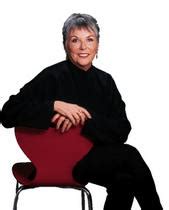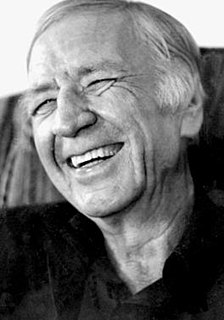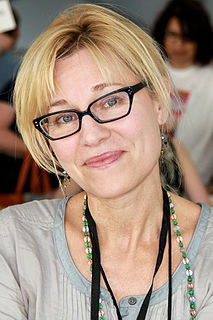A Quote by Robin Sloan
Without science fiction, without the influence these books have had on me over the years, I'm not sure I would care much about reading or writing today.
Related Quotes
It had also been my belief since I started writing fiction that science fiction is never really about the future. When science fiction is old, you can only read it as being pretty much about the moment in which it was written. But it seemed to me that the toolkit that science fiction had given me when I started working had become the toolkit of a kind of literary naturalism that could be applied to an inherently incredible present.
I think that I had read so much fiction that the craft itself sort of sank into me. I didn't read any 'how to' books or attend any popular-fiction-writing classes or have a critique group. For many years into my writing, I didn't even know another author. For me, a lot of reading was the best teacher.
Science fiction is fantasy about issues of science. Science fiction is a subset of fantasy. Fantasy predated it by several millennia. The '30s to the '50s were the golden age of science fiction - this was because, to a large degree, it was at this point that technology and science had exposed its potential without revealing the limitations.
Dad always said that he had enough trouble sorting the fiction out of so-called facts, without reading fiction. He always said that science was already too muddled without trying to make it jibe with religion. He said those things, but he also said that science itself could be a religion, that a broad mind was always in danger of becoming narrow.
Think about reading: Today, parents would love it if their kids read books more because the parents understand the books. Just over 100 years ago, parents were upset because their kids were reading dime-store novels. Parents would say, "I don't want you inside reading anymore. Get outside and play." I guarantee you, in 50 years or so, parents are going to say, "You're not going outside to play until you finish that video game."
I would say that most of my books are contemporary realistic fiction... a couple, maybe three, fall into the 'historic fiction' category. Science fiction is not a favorite genre of mine, though I have greatly enjoyed some of the work of Ursula LeGuin. I haven't read much science fiction so I don't know other sci-fi authors.
I guess...on one hand, I spent way too much time watching science fiction and reading science fiction when I was growing up. But a part of it is I also never felt much of a connection to the world in which I lived while I was growing up, and so, oddly enough, I think I felt a lot more connected to the worlds that I read about in science fiction.
The author with the greatest influence on me is my friend Stephen Harrigan, who critiques everything I write before I even bother to show it to my agent or editor. He's a truly great writer - author of Gates of the Alamo and other books you might know of, and his instincts about what's working in a story, and what's not, are just about perfect. My books would be very different without his influence.


































